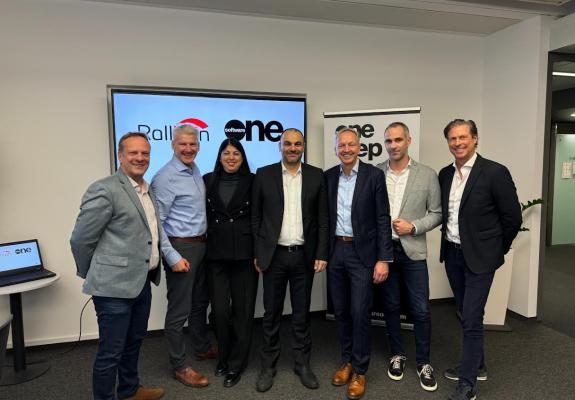Transformative Power of Human Capital in Tech: How to Unlock ROI Potential
CAO & Group CFO at Quadcode, Michael Gitsis on the importance of human capital in the tech industry
At the last Reflect Festival, the largest tech and entrepreneurship event in Cyprus, CAO & Group CFO at Quadcode, Michael Gitsis, talked about the importance of human capital in the tech industry and shared some insights about how Quadcode unlocks the ROI potential of its employees.
ROI (return of investment) is a financial metric used to evaluate the profitability or effectiveness of an investment. In essence, we are talking about the profit we obtain from each investment we make. When speaking about traditional industries, it seems quite easy to calculate ROI. If we talk about real estate, we can invest in a property to generate rental income. When considering marketing or manufacturing, we can invest in advertising and new machinery to generate additional income and reduce production costs, respectively. How about technology?
New features we invest in using our human capital will also generate income. But what are the main assets in each mentioned example? Real estate's asset is the property itself, while marketing and manufacturing have products and machinery. When dealing with technology, Michael believes that the most significant asset is the people behind it. The biggest question is: how to invest in your most significant assets — employees?
There are many ways to invest in talent. First and foremost is ensuring that the working environment, whether physical or virtual, is a proper place for employees to be the best version of themselves, resulting in the maximization of their productivity.
Imagine this: feeling busy and exhausted, but not achieving anything at the end of the day because most of the working hours were spent in endless meetings. Quite a common situation, isn't it? Here are some significant numbers: 73% of attendees do other tasks during meetings, nearly 50% of employees say they consider unproductive meetings to be the biggest source of wasted time in the office. Finally, $37 billion is the annual salary cost of unnecessary meetings in US businesses.
To solve the issue, Quadcode has engaged with an AI instrument — a time management tool that helps decrease unnecessary meetings and increase focus time. Employees at Quadcode have already seen the results: a) only those vital to the meeting are invited; b) meetings don't last too long. Another common situation is that a meeting lasts an hour, but all the important decision-making matters are announced at the end of the meeting. Why not start with the important solutions in the first 10-15 minutes? It is essential to analyze the situation in the company and calculate the cost versus the benefit of each meeting.
In the 19th century, a typical workday spanned 15-18 hours, but over time, we transitioned to an 8-hour workday. The question arises: does reducing our work hours impact our overall productivity? Indeed, our productivity has surged by a remarkable 3.5 times over the past century.
Historical evidence suggests that excessive work hours can lead to diminishing returns in our cumulative output. So, have we reached the optimal level of productivity? A recent experiment involving a further reduction to a 4-day workweek demonstrated a notable 10-20% increase in overall employee productivity. This implies that we may still be operating in a zone where excessive work negatively affects productivity.
In essence, by investing in the well-being of employees and ensuring a more active work-life balance, we can expect heightened creativity and productivity while also reducing absenteeism. The task at hand falls on both corporations and their employees to discover the ideal balance that maximizes output and well-being.


According to the workplace consulting and research company Gallup, engagement is the involvement and enthusiasm of employees. The research shows that the engagement level of employees can be measured. If workers are interested in their tasks, involved in the company's life, and enthusiastic about their work in general, this will result in a company having a 22% higher profit, a 21% increase in productivity, a 12% higher level of end customer satisfaction, and a 90% higher growth. It's also important to mention that staff turnover decreases by 25%.
Quadcode keeps employees engaged in many ways to bond, collaborate with each other, and have a good time to energize. Besides corporate events like New Year and Christmas parties, Special Fridays, and so on, the company focuses on different aspects of human life, providing its employees with sports activities (gym at the office, marathons, etc.). Projects like yoga, massage sessions, as well as sessions with nutritionists are quite vital when it comes to the well-being of employees. Quadcode also takes great care of its employees' mental health by providing them with psychological support. Moreover, the company organizes various competitions among employees, like annual internal hackathons and various team-building activities such as arts and crafts, paintball, golf, wine tasting, and many more.
The main point is that the essential asset is talent. Invest in talent to make them and the company thrive.






